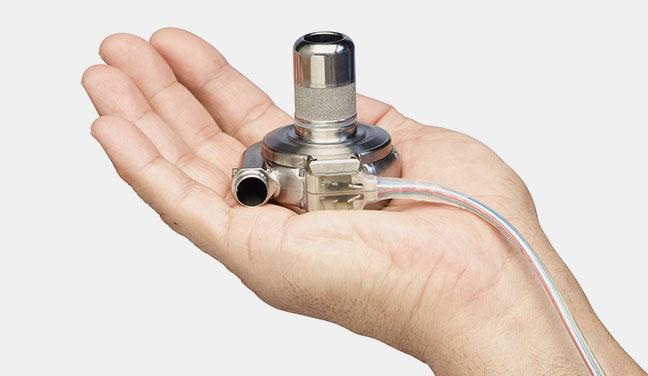Mixed Results, With Some Promising Data, in Heart Failure Destination Therapy Trial
The ENDURANCE Supplemental trial did not meet its primary endpoint, but there were secondary benefits for the HeartWare LVAD.

The HeartWare left ventricular assist device (LVAD) appears to have potential as a destination therapy in patients with end-stage heart failure who are not candidates for cardiac transplantation, at least when blood pressure is managed appropriately, new data suggest.
The ENDURANCE Supplemental trial did not meet its primary endpoint, with lead investigator Carmelo Milano, MD (Duke University Medical Center, Durham, NC), and colleagues reporting they failed to establish that HeartWare (Medtronic) is noninferior to the HeartMate II LVAD (Thoratec) in terms of the 12-month rate of neurologic injury (14.7% vs 12.1%; P = 0.14 for noninferiority).
HeartWare was superior to HeartMate II, however, for the secondary composite endpoint of freedom from death, disabling stroke, device exchange, or urgent transplant at 12 months (76.4% vs 66.9%; P = 0.035), according to findings presented this week at the International Society for Heart & Lung Transplantation 2017 Meeting and Scientific Sessions held in San Diego, CA.
Medtronic has submitted the findings from the study, combined with those from the original ENDURANCE trial, to the US Food and Drug Administration to support an expanded destination—or long-term—therapy indication for HeartWare, which is currently approved only for bridging to cardiac transplantation in patients with end-stage heart failure.
The original ENDURANCE trial established the noninferiority of HeartWare versus HeartMate II in terms of adverse event-free survival at 2 years in patients with end-stage heart failure who were not candidates for cardiac transplantation. In the trial, though, the rate of total stroke was unexpectedly higher in the HeartWare group (29.7% vs 12.1%), a difference driven by both ischemic and hemorrhagic events.
Elevated mean arterial blood pressure was strongly associated with stroke in the trial, so the Supplemental trial was designed to assess whether a protocol for blood pressure management could improve the performance of HeartWare.
The protocol—which was used only in the HeartWare arm—successfully lowered mean arterial blood pressure compared with both the control group of the Supplemental trial and the HeartWare arm from the original ENDURANCE trial. That, in turn, lowered the rate of stroke—particularly hemorrhagic stroke—seen in the HeartWare arm in the Supplemental trial compared with that in the original trial.
“The results on the ENDURANCE [Supplemental trial] show the importance of blood pressure control on reducing the incidence of neurological events in patients with left ventricular assist devices,” Jeffrey Teuteberg, MD (University of Pittsburgh, PA), program chair for the meeting, said in a press release. “Destination therapy continues to be an excellent option for patients suffering from end-stage heart failure who are not candidates for transplantation. As we improve our understanding of how to manage patients after implantation, this will hopefully result in continued improvements in outcomes and reductions in adverse events.”
Photo credit: Medtronic
Todd Neale is the Associate News Editor for TCTMD and a Senior Medical Journalist. He got his start in journalism at …
Read Full BioSources
Milano CA. The treatment of patients with advanced heart failure ineligible for cardiac transplantation with the HeartWare ventricular assist device: results of the ENDURANCE supplement trial. Presented at: ISHLT 2017. April 5, 2017. San Diego, CA.
Disclosures
- Milano reports relationships with Abbott and Medtronic.


Comments